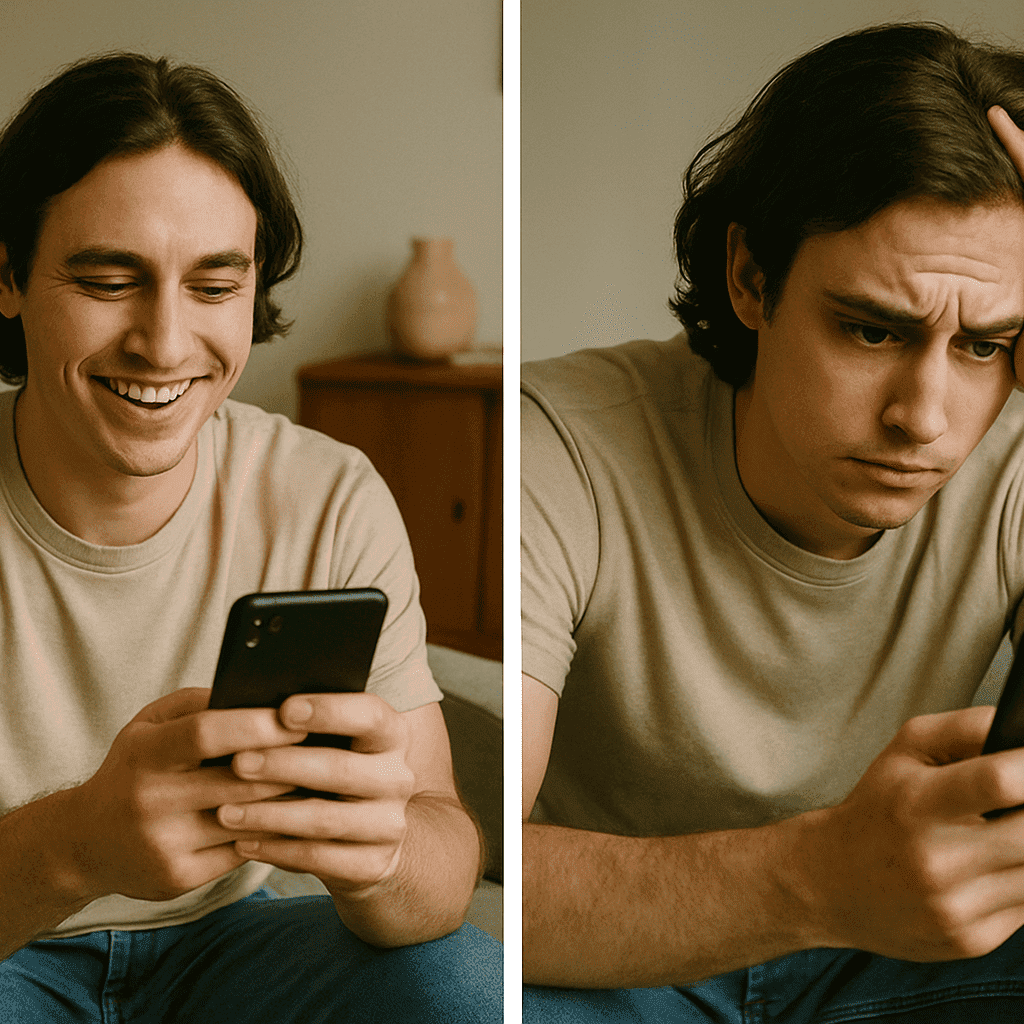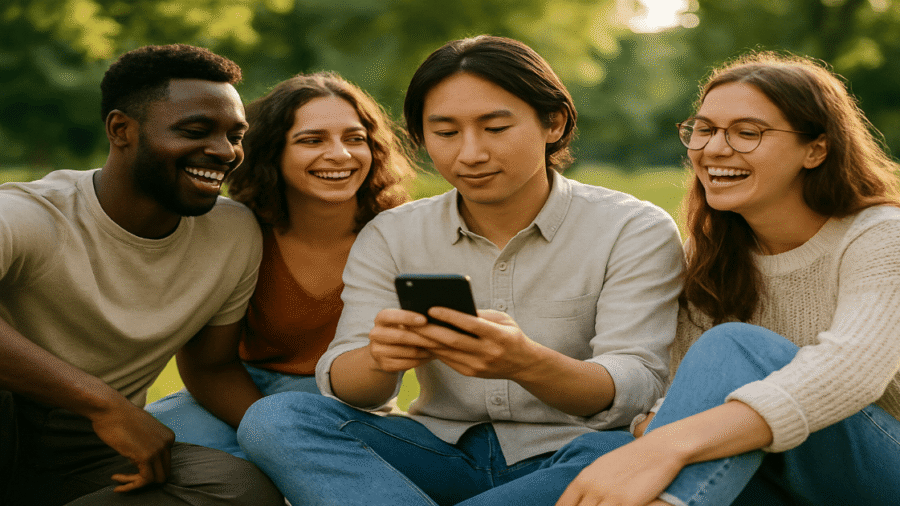In today’s hyper-connected world, social media is practically woven into the fabric of daily life. In fact, according to the Pew Research Center (2024), 72% of adults in the United States report using at least one social media platform daily. Yet with this rise in engagement comes a sharp increase in anxiety, depression, and burnout linked to online activities.
But here’s the truth: Social media isn’t inherently harmful — it’s how we use it that makes all the difference. Armed with the right strategies rooted in psychological research, you can enjoy the benefits of social media without letting it sabotage your mental health.
Let’s dive in.
The Psychological Impact of Social Media
Social media isn’t just bad news — it offers incredible positives too. Studies have shown it can foster connection, enhance support networks, and offer educational opportunities (Naslund et al., 2016, World Psychiatry). However, an avalanche of research highlights its darker side.
A landmark study published in The Lancet Child & Adolescent Health (2019) linked high social media use with increased depressive symptoms, particularly in teenagers. The triggers? Cyberbullying, lack of sleep, and negative body image comparisons.
Positive Effects:
- Strengthens long-distance relationships
- Provides spaces for marginalized voices
- Increases accessibility to mental health resources
Negative Effects:
- Amplifies social comparison
- Triggers FOMO (Fear of Missing Out)
- Promotes unhealthy validation cycles (likes = worth)
- Increases exposure to online harassment
Signs That Social Media May Be Harming Your Mental Health
How do you know when harmless scrolling is turning harmful? Watch for these red flags:
- You feel anxious or depressed after browsing.
- You compulsively check apps multiple times an hour.
- Your sleep is disrupted by nighttime scrolling.
- You feel disconnected from real-life relationships.
- Your self-esteem fluctuates based on online engagement.
Self-check: Ask yourself after a session, “Do I feel better or worse now?”

Why It’s So Hard to Log Off: The Psychology Behind the Habit
Your inability to put the phone down isn’t a failure of willpower — it’s neuroscience.
Social media platforms are meticulously engineered to hijack your brain’s reward system. Studies from Behavioral Brain Research (2020) explain how dopamine release — the same neurotransmitter involved in addiction — is triggered by unpredictable rewards like likes, shares, and comments.
Moreover, features like infinite scroll create “intermittent reinforcement”, a psychological phenomenon first studied by B.F. Skinner, which makes behaviors exceptionally hard to extinguish.
Key factors:
- Dopamine hits from likes
- FOMO as a social survival instinct
- Algorithm-driven echo chambers that keep feeding preferred content
Understanding this gives you power: You’re not weak — you’re biologically wired this way.
How to Use Social Media Mindfully and Safely
Now, here’s how to reclaim your mental space.
A. Set Clear Boundaries
- Time Block: Use your phone’s settings to limit social media usage to 30-60 minutes per day.
- Tech-Free Zones: Ban phones from bedrooms and dining tables to reclaim real-world presence.
Apps like Freedom can block distracting sites during your focused hours.
B. Curate Your Feed Intentionally
A 2021 study published in Cyberpsychology, Behavior, and Social Networking found that positive social media content correlated with better mental health outcomes.
- Unfollow accounts that trigger envy, body dissatisfaction, or outrage.
- Follow accounts that educate, inspire, or authentically uplift.
Tip: Regularly audit your feed like you’d declutter a closet.
C. Practice Conscious Engagement
Before posting or commenting, pause and ask yourself:
- “Am I seeking validation?”
- “Is this adding value or noise?”
Mindful posting shifts social media from reactive to intentional.
D. Take Regular Digital Detoxes
Short-term detoxes reset your dopamine pathways and reduce anxiety. In a study from Computers in Human Behavior (2018), participants who took a five-day break from Facebook reported significantly lower cortisol levels.
Start with:
- 24-hour “social media sabbath” weekly
- Full weekend off monthly
E. Engage in Real-Life Connections
Real smiles beat emojis every time. Strong offline relationships buffer stress and enhance well-being far more than online interactions (Holt-Lunstad et al., 2010, PLoS Medicine).
Make an effort to replace “likes” with laughter and hugs.
F. Use Technology to Help Manage Technology
Yes, tech can be part of the solution:
- Forest: Grow virtual trees as you stay off your phone.
- Moment: Track and reduce screen time.
- Offtime: Customize app blockers for focused living.
Tips for Parents: Helping Teens Build Healthy Social Media Habits
Teens are especially vulnerable. A report by Common Sense Media (2023) shows that nearly half of teenagers feel addicted to their phones.
Parental strategies:
- Model restraint: Kids mimic adult behaviors.
- Open conversations: Ask what they’re seeing online, without judgment.
- Collaborate on rules: Negotiate screen time instead of enforcing it unilaterally.
- Teach critical thinking: Discuss how online images and narratives are curated, not reality.
When to Seek Professional Help
If you notice persistent:
- Anxiety
- Depression
- Isolation
- Sleep disturbances
…despite healthy changes, it’s time to seek professional support.
Evidence-based therapies like Cognitive Behavioral Therapy (CBT) have proven highly effective in treating tech-related mental health challenges (source).
Find a licensed therapist via PsycheShare’s consultation feature.
Conclusion: Social Media Is a Tool — Use It Wisely
Social media can either enrich or erode your mental health. The choice lies in mindful, conscious usage.
Start by setting one small boundary today — even a five-minute mindful scroll break can make a difference.
Question for you:
👉 What healthy social media habit are you committing to today?
Drop your answer in the comments!
And if this post helped you, share it — let’s make mindful scrolling go viral.



[…] media to reclaim your mental peace. But you do need a strategy. If you are unsure where to begin, How to Use Social Media Without Harming Your Mental Health offers simple, realistic tips that can help you stay connected without losing your emotional […]